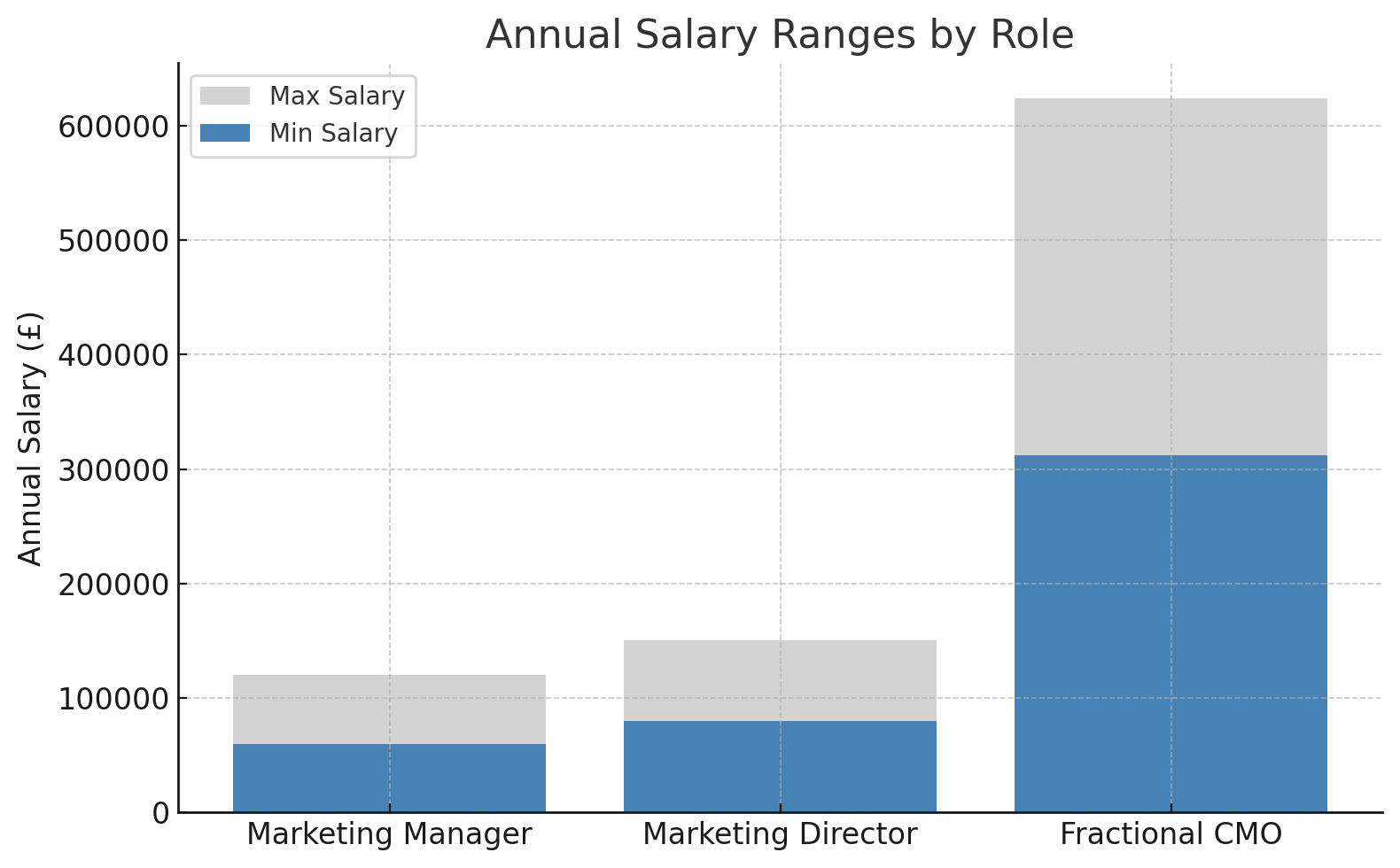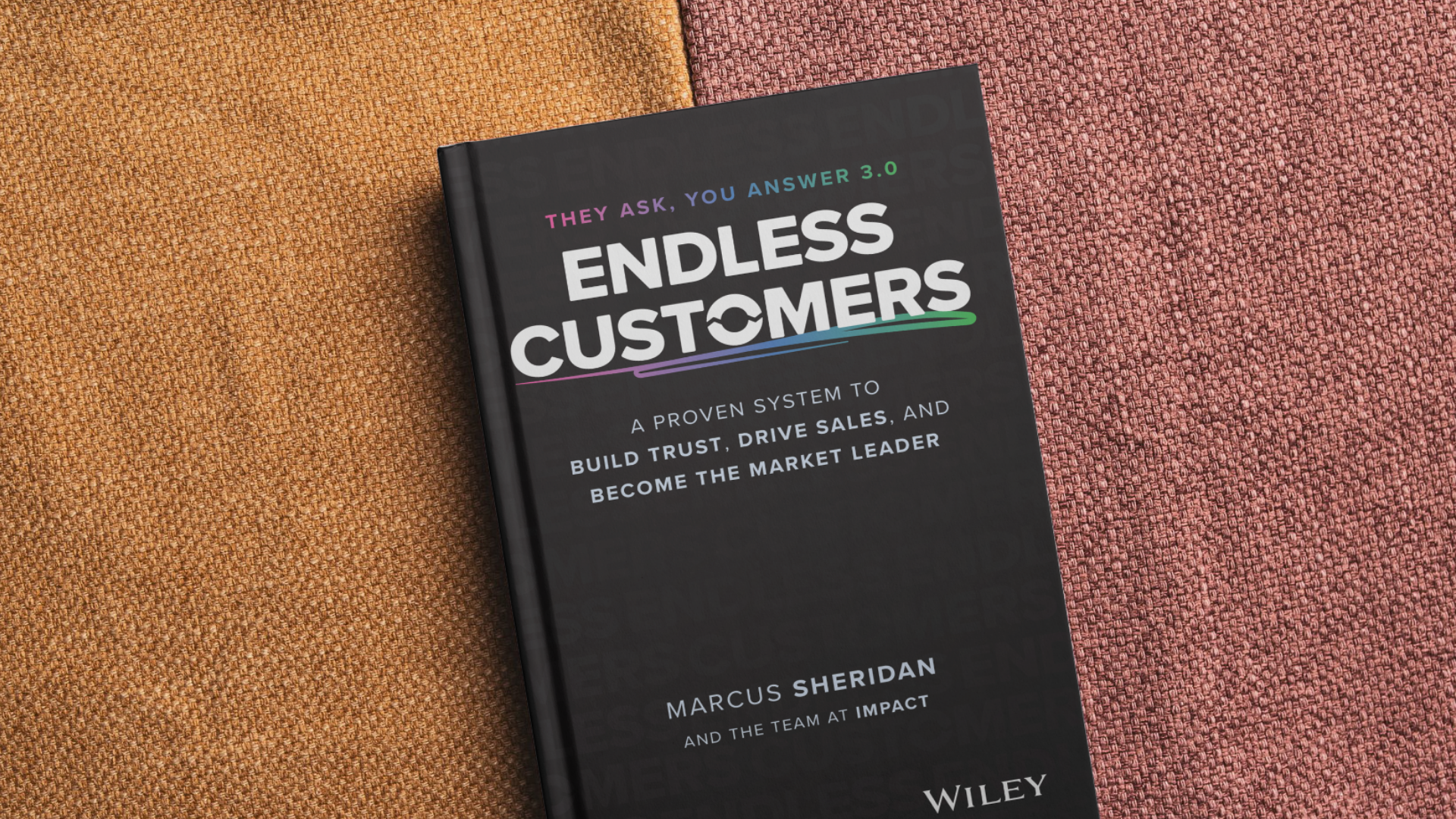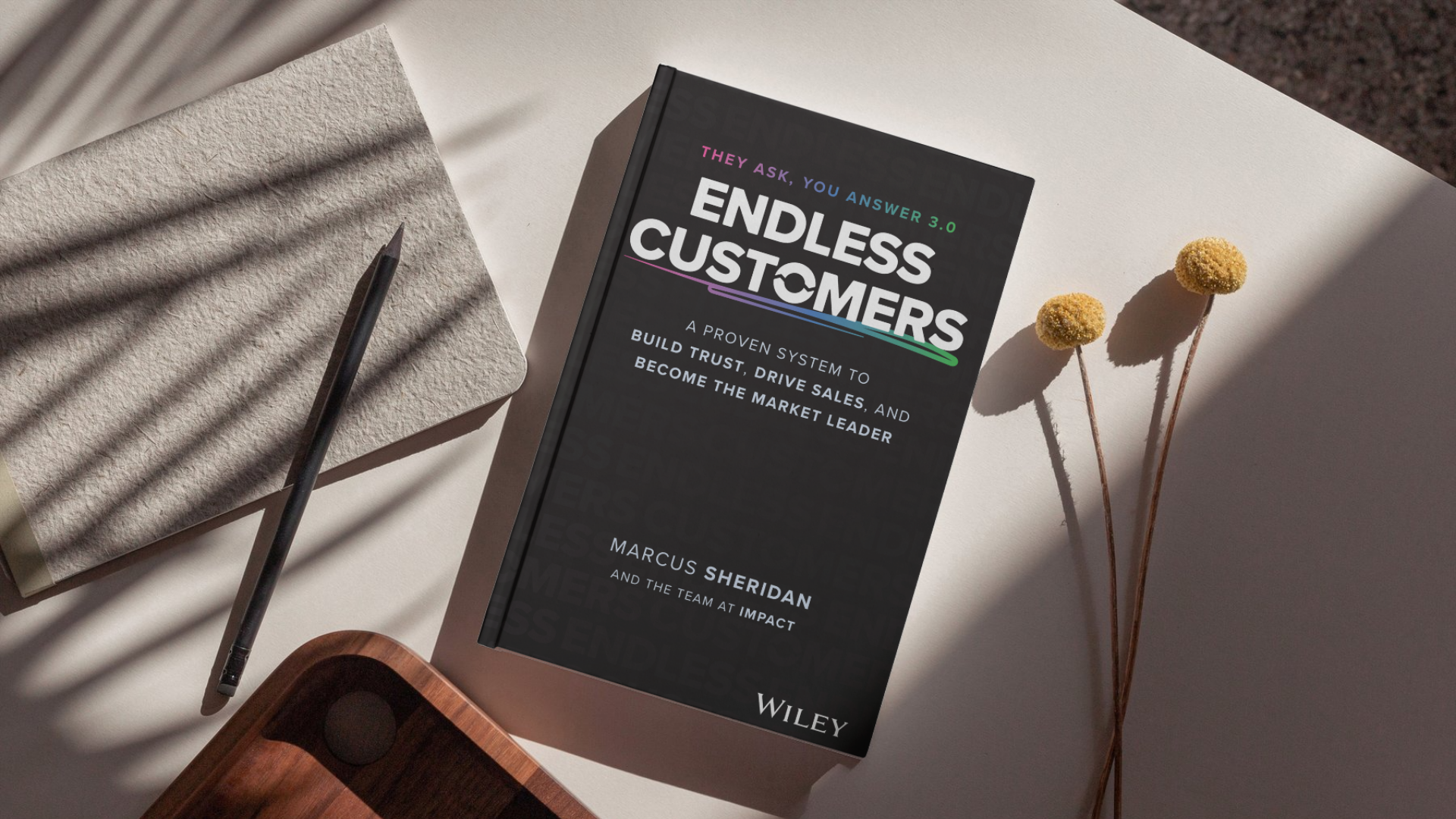Why Most Fractional CMOs Are Just Overpriced Marketing Managers: A Cost Analysis
November 4th, 2025
5 min read
By Tom Wardman

Are you paying £5,000+ ($6,100+) monthly for fractional CMO services but questioning the actual return on investment?
Do you suspect your "fractional CMO" spends more time managing social media calendars than developing strategic market positioning?
As someone who has coached dozens of businesses through this exact decision, I've seen firsthand how often companies pay executive rates for tactical execution. Here's the honest truth: many businesses discover they're paying CMO rates for marketing manager deliverables.
In this article, you'll see:
- A real cost breakdown between fractional CMOs and marketing managers
- Red flags of overpriced services that signal you're overpaying
- Alternatives that deliver better ROI for your marketing budget.
What fractional CMO costs really mean for your budget
A fractional CMO is a part-time chief marketing officer who typically charges between £3,000 to £15,000 ($3,700 to $18,400) per month for 10-20 hours of work weekly.
This pricing structure positions them as premium strategic consultants, yet many deliver tactical execution that resembles traditional marketing manager responsibilities.
The fractional CMO model emerged to give smaller businesses access to C-level marketing expertise without full-time executive salaries. However, the reality often differs significantly from the promise.
Most fractional CMOs charge hourly rates between £150-300 ($184-$368), working 2-4 days per month. This creates an interesting cost dynamic when compared to traditional marketing roles.
The challenge lies in distinguishing between genuine strategic leadership and glorified marketing management at premium pricing.
Fractional CMO cost breakdown vs marketing manager salaries
When calculated hourly, fractional CMOs often charge £150-300 ($184-$368) per hour, which translates to £312,000-624,000 ($383,000-$766,000) annually for full-time equivalent work.
In contrast, experienced marketing managers earn £60,000-120,000 ($73,700-$147,400) annually, making fractional CMOs cost 3-5 times more for potentially similar deliverables.
Here's the breakdown:
| Role | Annual Salary | Hourly Rate | Monthly Cost (20 hours) |
|---|---|---|---|
| Marketing Manager | £60,000-£120,000 ($73,700-$147,400) | £30-£60 ($37-$74) | £600-£1,200 ($737-$1,474) |
| Marketing Director | £80,000-£150,000 ($98,300-$184,400) | £40-£75 ($49-$92) | £800-£1,500 ($983-$1,844) |
| Fractional CMO | £312,000-£624,000* ($383,000-$766,000*) | £150-£300 ($184-$368) | £3,000-£6,000 ($3,686-$7,373) |
*Full-time equivalent calculation

Research from Deloitte on fractional executive trends highlights the growing demand for part-time executives, yet many businesses struggle to justify the premium pricing.
The cost differential becomes even more stark when you consider that many fractional CMOs operate more like senior marketing managers than true C-level executives.
This pricing disparity raises serious questions about value delivery, especially when the actual work involves campaign management rather than strategic market development.
Common business problems with overpriced fractional CMOs
Companies often experience budget drain without seeing C-level strategic impact, as many fractional CMOs focus on campaign management rather than growth strategy.
The most common issues include lack of board-level reporting, missing strategic frameworks, and over-emphasis on tactical marketing activities that could be handled by junior staff.
Key problems businesses encounter:
- Strategic gaps remain unfilled - Companies still lack market positioning, competitive analysis, and growth strategy despite paying executive rates
- Team development suffers - Instead of building internal capabilities, fractional CMOs often create dependency on their continued involvement
- ROI becomes questionable - When tactical work dominates, the cost-per-deliverable often exceeds internal alternatives
- Communication breakdowns - Many fractional CMOs lack the board-level communication skills expected at C-level positions
The fundamental issue is mismatched expectations. Businesses expect transformative strategic leadership but receive operational marketing support at premium pricing.
According to CMO Council research, 67% of businesses report difficulty measuring ROI from marketing leadership investments.
Through my experience building trusted marketing systems for dozens of companies, I've witnessed this pattern repeatedly where businesses achieve better results by hiring capable marketing managers and supplementing with targeted strategic consulting when needed.
Fractional CMO vs marketing manager: Key role differences that impact cost
True CMOs develop comprehensive market strategies, oversee multiple channels, and drive revenue growth at the executive level, while marketing managers typically focus on campaign execution and day-to-day operations.
However, many fractional CMOs operate more like senior marketing managers, handling social media planning, content calendars, and basic analytics rather than strategic market positioning.
Here's what each role should actually deliver:
Marketing Manager:
- Campaign execution and management
- Content creation and social media
- Lead generation activities
- Basic analytics and reporting
- Team coordination
- Multi-channel strategy development
- Budget allocation and management
- Advanced analytics and insights
- Cross-department collaboration
- Team leadership and development
True CMO:
- Market strategy and competitive positioning
- Board-level reporting and communication
- Revenue accountability and forecasting
- Organisational growth planning
- Strategic partnership development
The reality check: if your fractional CMO primarily handles tasks in the first category, you're paying executive rates for manager-level work.
So how do you know if the fractional CMO you've hired is acting like an executive or a manager? The distinction becomes clear when you evaluate their actual deliverables against these role definitions.
How to evaluate fractional CMO ROI and value for money
A fractional CMO justifies their cost when they demonstrate clear ROI through strategic initiatives like market expansion, pricing strategy, or transformative brand positioning.
Red flags include focusing primarily on social media management, blog writing, or other tasks that marketing coordinators typically handle at a fraction of the cost.
Evaluation criteria for fractional CMO value:
Strategic deliverables:
- Market analysis and competitive positioning
- Revenue-focused growth strategies
- Board-level reporting and insights
- Organisational capability building
Tactical red flags:
- Social media post scheduling
- Blog writing and content creation
- Basic email campaign management
- Administrative marketing tasks
Questions to ask your fractional CMO:
- How do you measure strategic impact vs tactical output?
- What board-level insights have you provided?
- How are you building internal marketing capabilities?
- What strategic frameworks guide your decision-making?
The litmus test: if their work could be handled by a £40,000 ($49,200) marketing manager, you're overpaying by £30,000+ ($36,900+) annually.
Harvard Business Review research on executive effectiveness emphasises that true executive value comes from strategic thinking, not operational execution.
Consider this: many businesses achieve better results combining a skilled marketing manager with quarterly strategic consultations from experienced marketing leaders.
Best alternatives to overpriced fractional CMOs
So if most fractional CMOs fail to justify their premium, what options deliver better ROI?
Companies often achieve better ROI by hiring a full-time marketing manager (£70K-90K / $86,100-$110,700) plus strategic consulting sessions with true marketing executives on an as-needed basis.
Other cost-effective alternatives include marketing agencies with proven track records, part-time marketing directors, or building internal teams with specialised freelancers for specific campaigns.
Cost-effective alternatives:
-
In-house manager & strategic consulting
-
Marketing manager: £70,000-£90,000 ($86,100-$110,700) annually
- Quarterly strategic sessions: £5,000-£10,000 ($6,100-$12,300) annually
- Total cost: £75,000-£100,000 ($92,200-$123,000) vs £150,000+ ($184,400+) for fractional CMO
-
-
Specialist marketing agencies
-
Focused expertise in specific areas
-
Scalable investment based on results
-
No long-term executive commitments
-
-
Part-time marketing directors
-
More operational than fractional CMOs
-
Lower cost than full fractional executive
-
Direct team leadership and development
-
For businesses considering this approach, my In-House Sales and Marketing Mastery programme demonstrates how to build internal marketing capabilities that eliminate long-term dependence on external executives while developing sustainable expertise.
The key insight: many businesses need marketing execution more than they need another strategic consultant.
Before committing to expensive fractional CMO arrangements, honestly assess whether your primary need is strategic direction or reliable marketing implementation.
Finding what's right for you
At the end of the day, many businesses discover they're overpaying for tactical execution at executive rates. You came here questioning whether fractional CMOs are worth the cost, and now you've seen the numbers and warning signs for yourself.
The data is clear: fractional CMOs often charge 3-5x more than marketing managers for potentially similar deliverables. You're now equipped to spot the red flags of tactical focus over strategic thinking, absence of board-level insights, and dependency creation rather than capability building.
Your next step is assessing whether your business needs strategic leadership or reliable execution. Through my services, I help businesses build sustainable marketing capabilities without the unnecessary cost of overpriced fractional executives. Rather than creating dependency, this approach develops internal expertise that drives long-term growth at a fraction of traditional fractional CMO costs.
The choice is clear: continue paying premium rates for questionable value, or invest in building capabilities that serve your business for years to come. With the right structure in place, your marketing investment can drive scalable growth without draining your budget.
Topics:





















